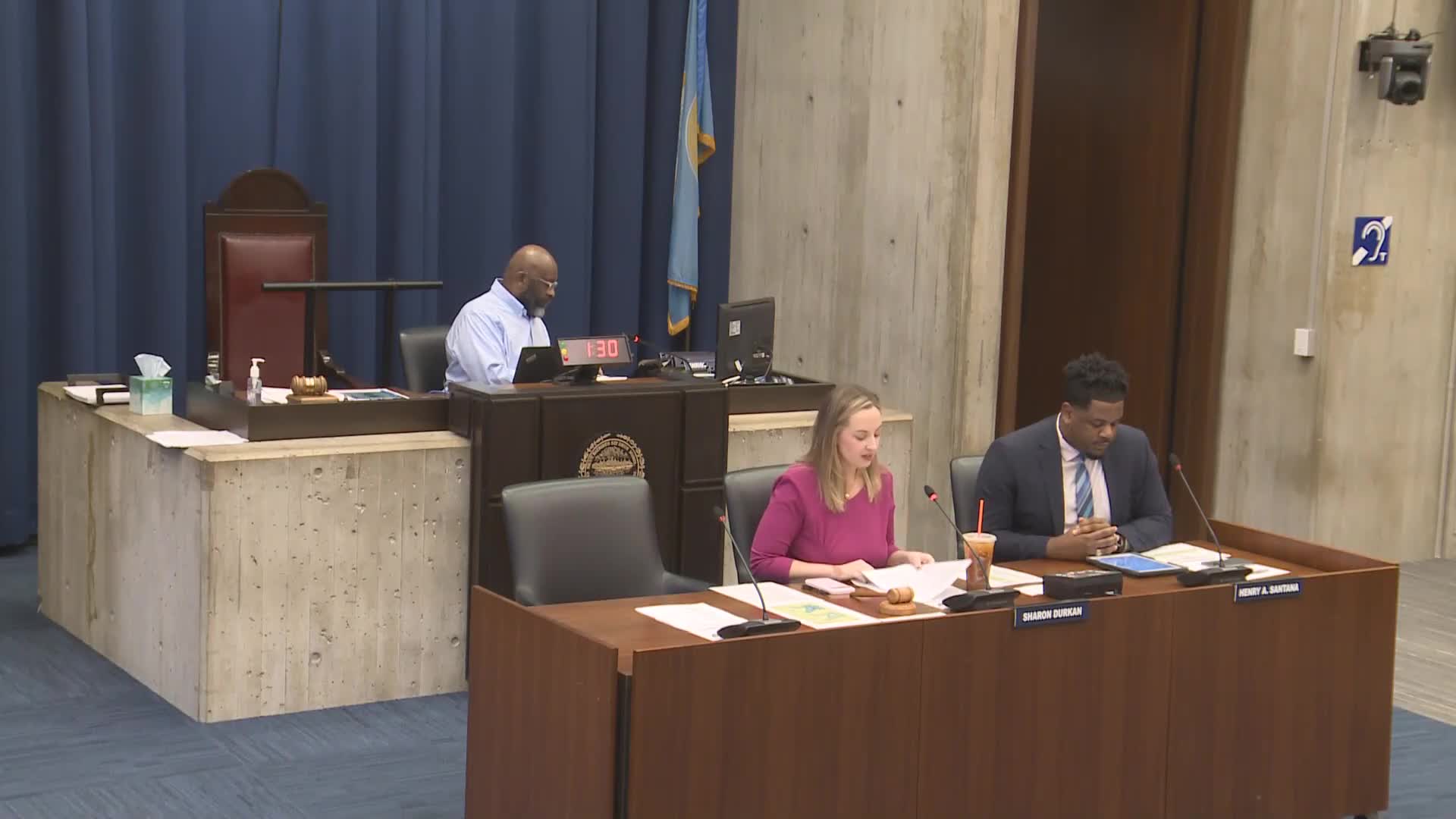Boston council hearing spotlights plan to legalize triple deckers and expand ADUs as tools to add housing
Get AI-powered insights, summaries, and transcripts
Subscribe
Summary
City planners and councilors debated rezoning to legalize 2–4‑unit triple deckers and allow accessory dwelling units (ADUs) by right; planning staff said current zoning mismatches block repairs and ADU construction, while councillors and advocates pressed for speed, equity safeguards and permitting/financing support. The dockets remain in committee.
Boston — The Boston City Council Committee on Planning, Development and Transportation heard testimony Nov. 18 on two related proposals to ease zoning restrictions: Docket 1632, to legalize triple deckers and other 2‑ to 4‑unit housing, and Docket 1718, to allow accessory dwelling units (ADUs) by right citywide. Chair Sharon Durkin opened the hearing noting the cases were sponsored by Councillors Henry Santana and Enrique Pepin and that public testimony would follow.
Planning staff told the committee that the city’s zoning no longer matches the buildings on the ground and that the mismatch forces many routine repairs and modest additions into the Boston Zoning Board of Appeal process. "If you look at the sort of when buildings were built…60% of the small scale buildings were built before there was any kind of zoning," said a planning presenter, and he summarized their analysis by saying nearly all residential parcels are nonconforming on at least one rule. Staff repeatedly cited one headline figure in their presentation: "99% of the homes in residential zone districts…you could not rebuild it without a variance," a framing they used to argue for district updates and clearer, citywide standards.
Staff pointed to Plan Mattapan and Plan East Boston as implementation precedents. Planning officials said Mattapan’s rezoning, which made some ADU work permitted by right, sharply reduced the number of small projects that required ZBA relief: "Instead of having half or more things need to go to the ZBA for small scale renovations and maintenance, now we can see that 90% of these kinds of projects can breeze through and just get a permit without needing zoning relief," a staff member said. They also said the Planning Department and the Boston Home Center have an ADU guidebook and financing tools; staff reported that 226 ADUs had received building permits citywide as of Sept. 12 (permits issued, not necessarily completed).
Lead sponsor Councillor Henry Santana framed ADUs and legal triple deckers as pro‑homeownership reforms that serve immigrant and multigenerational households, saying ADUs are "a form of affordable housing that addresses specific community needs." Other councilors pressed staff on timeline and scope — including whether rezoning would remain neighborhood‑by‑neighborhood or move citywide — and asked how the work would protect long‑time residents from displacement.
A second panel of architects, developers and advocates urged a faster, broader approach. Jesse Kancin Beninoff of Abundant Housing Massachusetts cited polling the group conducted showing high public support for ADU legalization and said the state’s ADU law demonstrates demand. Jillian Wall, a modular‑construction developer, described off‑site assembly as a tool to cut on‑site time for a three‑story building from months to days and said her company set a triple‑decker frame in Somerville in four days.
Councilors and panelists debated several recurring issues: whether owner‑occupancy limits should remain, how to structure grants or loans so BIPOC homeowners benefit, the cost drivers (fire‑protection requirements for detached units, site access and water/sewer needs), the effect on on‑street parking, and whether zoning templates can encourage family‑sized ownership units rather than investor‑driven rentals. Several councilors and panelists also argued that the traditional public‑meeting process is not representative — that in‑person hearings tend to overrepresent wealthier homeowners opposed to change — and recommended polling and alternative outreach to surface broader public preferences.
Public testimony included residents who described triple deckers and ADUs as multigenerational housing lifelines; other commenters urged attention to fire‑access and setbacks and warned about institutional investors targeting single‑family lots. Planning staff said the immediate work will focus on draft districts for Roslindale, Hyde Park and West Roxbury, paired with a 6‑to‑14‑unit guidebook for missing‑middle housing and further public mapping sessions.
The committee did not approve either docket at the hearing. Chair Durkin closed the session and said both dockets — 1632 and 1718 — will remain in committee for further hearings and follow‑up, including a Dec. meeting focused on parking minimums.
The record: the hearing transcript and slide materials provided by the Planning Department; committee staff said additional follow‑up materials and neighborhood mapping sessions will be posted before subsequent meetings.
